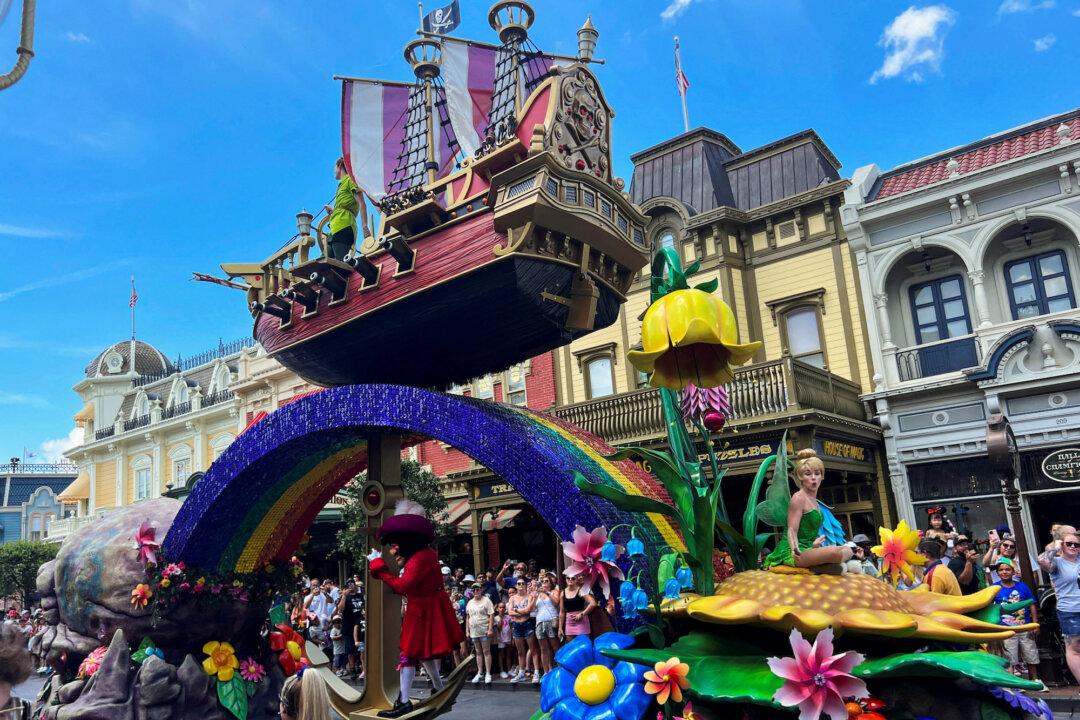Florida Gov. Ron DeSantis doubled down on his war with the Disney company, saying the legislature will soon invalidate the company’s last-minute moves to circumvent the new state-appointed board governing its special district.
In a speech in Lake Buena Vista on April 17, DeSantis said he was confident the special district’s new board—at its meeting this week—would invalidate as illegal Disney’s early February deal with the old board to transfer most of the district’s power back to the company.





